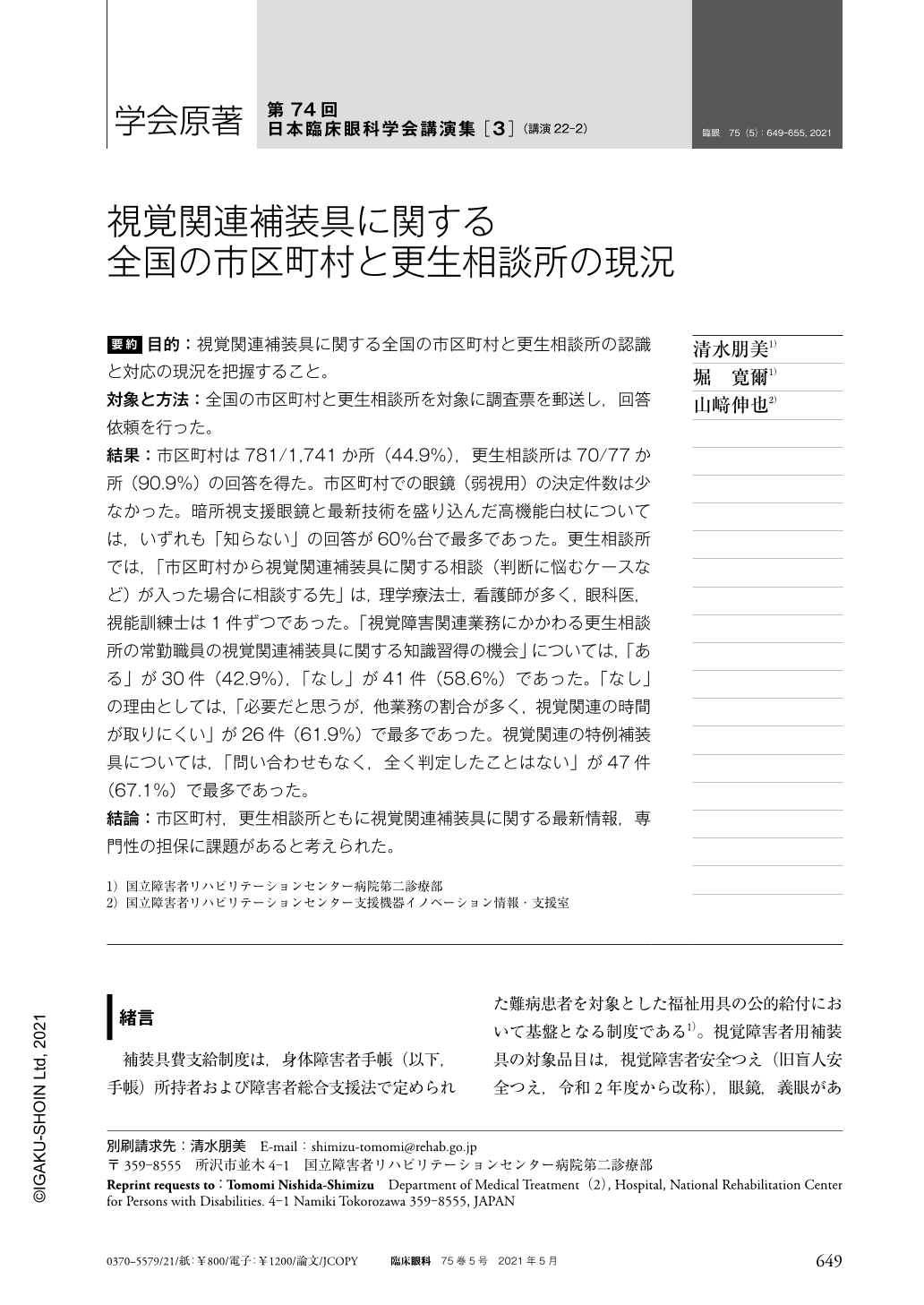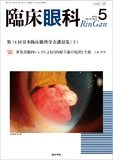Japanese
English
- 有料閲覧
- Abstract 文献概要
- 1ページ目 Look Inside
- 参考文献 Reference
要約 目的:視覚関連補装具に関する全国の市区町村と更生相談所の認識と対応の現況を把握すること。
対象と方法:全国の市区町村と更生相談所を対象に調査票を郵送し,回答依頼を行った。
結果:市区町村は781/1,741か所(44.9%),更生相談所は70/77か所(90.9%)の回答を得た。市区町村での眼鏡(弱視用)の決定件数は少なかった。暗所視支援眼鏡と最新技術を盛り込んだ高機能白杖については,いずれも「知らない」の回答が60%台で最多であった。更生相談所では,「市区町村から視覚関連補装具に関する相談(判断に悩むケースなど)が入った場合に相談する先」は,理学療法士,看護師が多く,眼科医,視能訓練士は1件ずつであった。「視覚障害関連業務にかかわる更生相談所の常勤職員の視覚関連補装具に関する知識習得の機会」については,「ある」が30件(42.9%),「なし」が41件(58.6%)であった。「なし」の理由としては,「必要だと思うが,他業務の割合が多く,視覚関連の時間が取りにくい」が26件(61.9%)で最多であった。視覚関連の特例補装具については,「問い合わせもなく,全く判定したことはない」が47件(67.1%)で最多であった。
結論:市区町村,更生相談所ともに視覚関連補装具に関する最新情報,専門性の担保に課題があると考えられた。
Abstract Purpose:To understand the current status of municipalities and rehabilitation counseling offices nationwide regarding vision-related assistive devices.
Subjects and methods:A questionnaire was mailed to municipalities and rehabilitation counseling offices nationwide, and a response request was made.
Results:We received responses from 781/1,741(44.9%)municipalities and 70/77(90.9%)rehabilitation counseling offices. In municipalities, the average number of glasses(for low vision)for the five years since 2014 was 136.4 per year. Regarding scotopic vision support glasses and high-performance white canes incorporating the latest technology, the highest number of respondents answered “I don't know” in the 60% range. When the rehabilitation counseling offices needed consultation regarding vision-related assistive devices(cases where judgment was difficult, etc.), they consulted with physiotherapists and nurses more frequently. There were two rehabilitation counseling offices which consulted with ophthalmological staff, one of the two was done with an ophthalmologist and the other was a certified orthoptist. Regarding “opportunities for full-time staff of rehabilitation counseling offices involved in visually impaired work to acquire knowledge about vision-related assistive devices”, 42.9% answered “yes” and 58.6% answered “none”. The most common reason for selecting “none” was “I think it is necessary, but the ratio of other work is large and it is difficult to take time related to vision” was the most common at 61.9%. Regarding special vision-related assistive devices, 67.1% answered that they had no inquiries and never made a decision.
Conclusions:Both the municipalities and the rehabilitation counseling office were considered to have problems in ensuring the latest information and expertise regarding prosthetic devices used by visually impaired individuals.

Copyright © 2021, Igaku-Shoin Ltd. All rights reserved.


